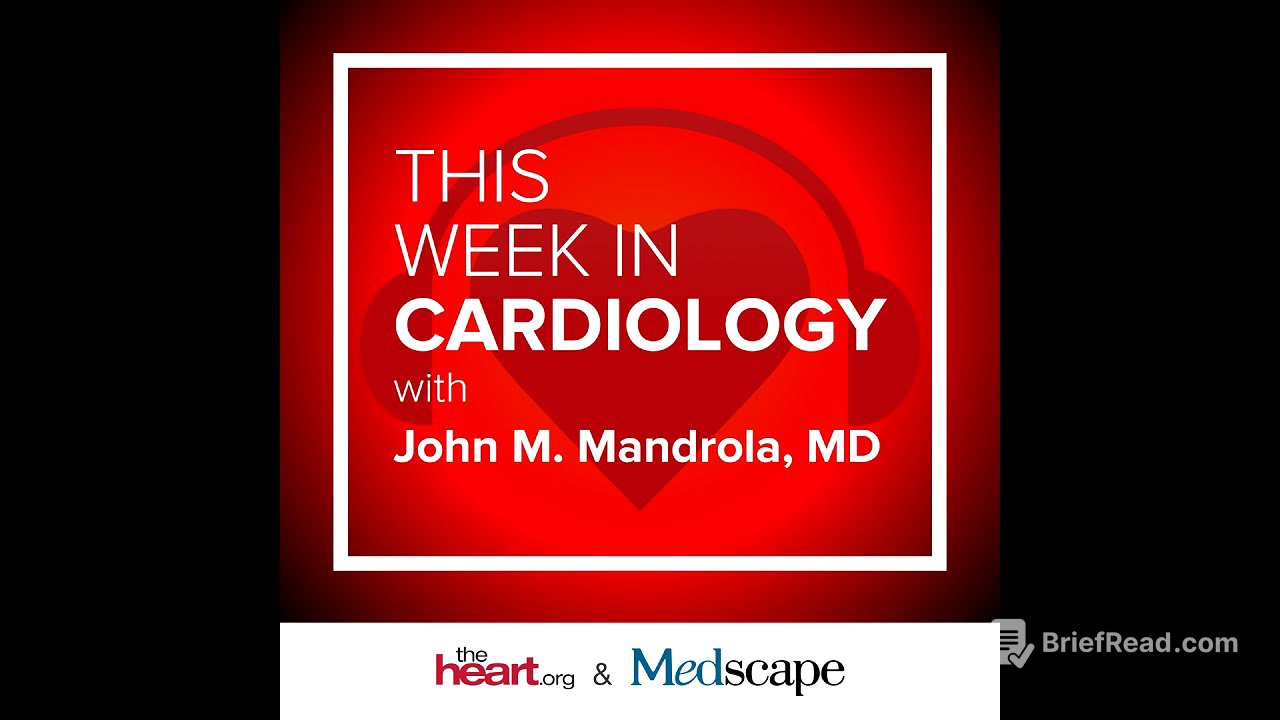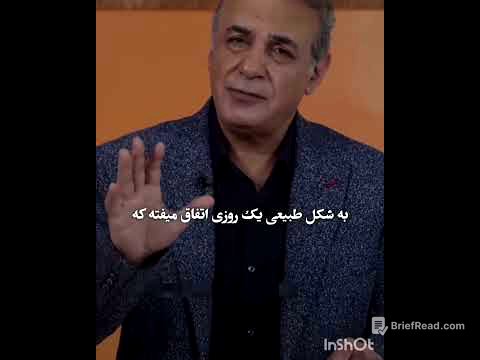TLDR;
This podcast episode covers a range of topics in cardiology, including a discussion on the empirical evidence for exercise, the use of aldosterone modulation in cardio-kidney disease, and a comparison of AI versus doctor ECG readings. It also examines GLP1 comparisons, end-of-life decisions among physicians, and the unintended consequences of the Mission Act on US veterans' cardiac outcomes.
- Exercise benefits are promoted despite weak empirical evidence.
- Finerone's approval prompts review articles, but lacks comparison to spironolactone.
- AI outperforms doctors in ECG interpretation for STEMI equivalents.
- Tzepatide shows non-inferiority but not superiority to dulaglutide in cardiovascular outcomes.
- Physicians' end-of-life preferences often contrast with their actual end-of-life care.
- The Mission Act, intended to improve veterans' access to care, worsened outcomes for PCI and CABG.
Listener Feedback on Exercise [0:45]
The podcast starts with a response to listener feedback regarding the benefits of exercise. A skeptical cardiologist questions the reliance on observational studies and guidelines that support exercise for cardiovascular health, pointing out the lack of robust randomized controlled trials (RCTs) in this area. The speaker acknowledges the weak empirical evidence for exercise due to challenges in conducting long-term studies and ethical concerns about randomizing people to no exercise. Despite these limitations, the speaker defends promoting exercise, comparing it to promoting kindness or clean air, where the benefits are intuitively understood without needing extensive data.
Aldosterone Modulation in Cardio Kidney Disease [3:23]
The discussion shifts to aldosterone modulation in cardio-kidney disease, prompted by a review article following the FDA approval of finerenone, a non-steroidal mineralocorticoid receptor antagonist (MRA). The speaker expresses concern that finerenone was not studied against spironolactone, a generic alternative. The speaker emphasizes the underutilization of MRAs in cardiology, highlighting the RALES trial, which demonstrated a significant reduction in mortality with spironolactone in patients with heart failure with reduced ejection fraction (HFrEF). The speaker advocates for prioritizing spironolactone due to its efficacy and lower cost.
AI vs. Doctor ECG Reading [5:47]
The podcast reviews a study comparing the accuracy of an AI algorithm (Queen of Hearts) versus doctors in interpreting ECGs for STEMI equivalents and mimics. The study included challenging ECGs that often lead to misclassifications. The AI algorithm demonstrated significantly higher accuracy (89%) compared to emergency medicine physicians and cardiologists (66%). The AI model accurately classified most ECG types, with the exception of left bundle branch block OMI and left ventricular aneurysms. The speaker suggests that AI could be a valuable adjunct in diagnosing subtle STEMI equivalents, similar to the use of point-of-care ultrasound for central venous access.
GLP1 Comparisons [12:08]
The podcast covers the results of the SURPASS cardiovascular outcomes trial, which compared tirzepatide (a GIP/GLP-1 dual agonist) to dulaglutide in patients with diabetes and established cardiovascular disease. While tirzepatide showed an 8% relative risk reduction in cardiovascular death, heart attack, or stroke compared to dulaglutide, it only met the criteria for non-inferiority, not superiority. The speaker notes that the trial was powered for a 15% relative risk reduction, and the confidence intervals for the primary endpoint included 1.01. The speaker questions the clinical significance of the 16% reduction in all-cause mortality, suggesting it may be a noise issue. The speaker also criticizes the non-inferiority design of the trial, arguing that it is not appropriate for interventions that do not offer advantages in terms of invasiveness, cost, or risk.
End of Life Decisions [17:22]
The podcast discusses a survey of physicians' preferences for their own end-of-life care, revealing that they rarely consider life-sustaining practices like CPR or mechanical ventilation as good options. Euthanasia was considered a very good option by about half of the physicians surveyed. The speaker reflects on the severity of illness in hospitalized patients and the challenge of determining when to stop aggressive interventions. The speaker cites a study showing that US doctors spend as much time in the hospital and ICU in their last six months of life as non-doctors, despite expressing a desire for less intensive care. The speaker emphasizes the importance of helping people have a good life and a good death, acknowledging that modern medicine is better at prolonging life than ensuring a good quality of death.
Well-Meaning Policies That Make Sense [22:08]
The podcast concludes with a discussion of the unintended consequences of the Mission Act, which aimed to improve veterans' access to care by allowing them to seek treatment outside of VA hospitals if they lived far from a VA facility. A study found that the Mission Act was associated with worsened 30-day MACE rates for veterans undergoing PCI or CABG, likely because they received care at smaller, non-teaching, for-profit hospitals with less experienced teams. The speaker suggests that the policy, while well-intentioned, resulted in worse outcomes due to the variability in the quality of care in US hospitals. The speaker advocates for implementing policies in an RCT pilot form first to identify and mitigate potential harm.









